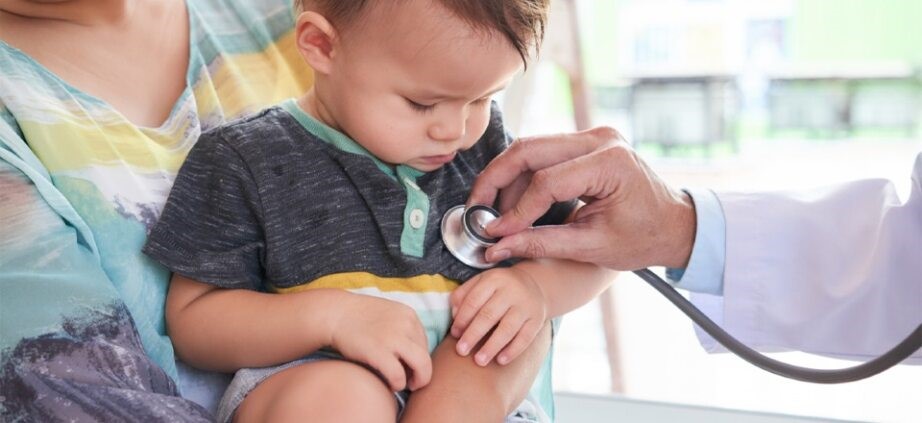Categories
Liver Problems in Children: Signs Every Parent Should Know
Jul 26, 2025
The liver is a vital organ that is essential to a child’s overall health and development. From supporting digestion and metabolism to filtering toxins and storing critical nutrients, the liver does much more than most realize. When something goes wrong with this organ, the signs may not always be evident at first. Yet, early detection and timely care can significantly affect the outcome.
Parents must be aware of the early warning signs of liver problems in children. Whether it’s due to a viral infection, a genetic condition, or an autoimmune disorder, the earlier the problem is identified, the better the chances of managing it.
This article explains the common signs of liver problems in children, when to see a child specialist, and how Rainbow Hospitals can support your child’s care journey.
Treatment depends on the cause. It may include:
While liver problems in children can be severe, most conditions are manageable if caught early. If something feels off, whether it is their energy, appetite, or appearance, trust your instincts and speak to a qualified child specialist. Timely attention can make all the difference.
Disclaimer:
The information provided in this blog is for general informational purposes only and should not be considered a substitute for professional medical advice, diagnosis, or treatment. Always seek the guidance of a qualified healthcare provider with any questions you may have regarding a medical condition, symptoms, or treatment options. Never disregard professional medical advice or delay seeking it because of something you have read here.
Parents must be aware of the early warning signs of liver problems in children. Whether it’s due to a viral infection, a genetic condition, or an autoimmune disorder, the earlier the problem is identified, the better the chances of managing it.
This article explains the common signs of liver problems in children, when to see a child specialist, and how Rainbow Hospitals can support your child’s care journey.
Why Liver Problems Happen in Children?
Liver conditions in children may range from mild and short-term issues to more serious, chronic disorders. Some of the common causes include:- Hepatitis (A, B, or C): Viral infections that affect liver function.
- Biliary Atresia: A rare condition in newborns where the bile ducts are blocked or missing.
- Fatty Liver Disease: Seen in children who are overweight or have poor dietary habits.
- Metabolic Disorders: Inherited conditions that affect how the body processes substances.
- Autoimmune liver disease occurs when the body’s immune system attacks its liver cells.
- Liver tumours: Though rare, benign and cancerous tumors can occur in children.
Warning Signs Parents Should Not Ignore
Liver problems may develop slowly or appear suddenly. If your child shows any of the signs below, it is wise to consult a child specialist as soon as possible.Persistent Jaundice
The skin and eyes may be yellowed in newborns for a few days. However, if it continues beyond two weeks or appears later in childhood, it could point to a liver condition.Swelling in the Abdomen
A bloated belly, particularly if it feels hard or uncomfortable, might be due to fluid buildup or an enlarged liver.Nausea, Vomiting, or Poor Appetite
If your child is regularly refusing food, feeling nauseous, or vomiting without any apparent reason, it could be more than just a stomach bug.Pale or Clay-Coloured Stools
A lack of bile in stools can lead to unusually pale or whitish stools — this is a strong sign of liver or bile duct problems.Dark Yellow Urine
Dark urine in a well-hydrated child should not be ignored. It could mean the liver is not processing waste effectively.Itchy Skin
Constant itching without rashes can indicate bile salt accumulation in the bloodstream, which occurs in certain liver disorders.Unusual Tiredness or Weakness
If your child is often too tired to play or seems unusually sluggish, it may be due to reduced liver function affecting energy levels.Easy Bruising or Bleeding
The liver helps with blood clotting. Liver problems may cause unexplained bruises or nosebleeds in children.Delayed Growth or Puberty
Children with long-term liver issues may not gain weight properly or show delayed physical development.Diagnosis and Treatment Options
At Rainbow Children’s Hospital, our team of experienced child specialists works closely with pediatric gastroenterologists and hepatologists to understand and treat the root cause of liver problems. Tests such as liver function tests, ultrasound scans, genetic screening, and liver biopsies may be used to reach a diagnosis.Treatment depends on the cause. It may include:
- Medication to manage infection or inflammation
- Dietary changes for fatty liver disease
- Surgery in case of biliary atresia or tumours
- Liver transplant for end-stage liver disease
How Rainbow Children’s Hospital Can Help?
Rainbow Children's Hospital is known for its comprehensive pediatric care and advanced medical support. Our approach to treating liver problems in children combines accurate diagnosis, compassionate care, and the latest technologies. We also offer long-term follow-up and counselling to support children and their families through every stage of care.While liver problems in children can be severe, most conditions are manageable if caught early. If something feels off, whether it is their energy, appetite, or appearance, trust your instincts and speak to a qualified child specialist. Timely attention can make all the difference.
Disclaimer:
The information provided in this blog is for general informational purposes only and should not be considered a substitute for professional medical advice, diagnosis, or treatment. Always seek the guidance of a qualified healthcare provider with any questions you may have regarding a medical condition, symptoms, or treatment options. Never disregard professional medical advice or delay seeking it because of something you have read here.











